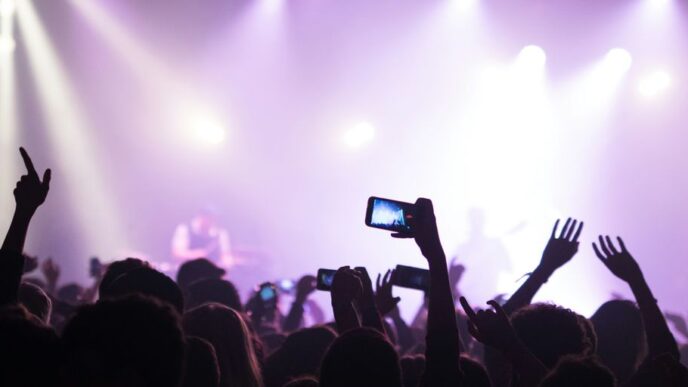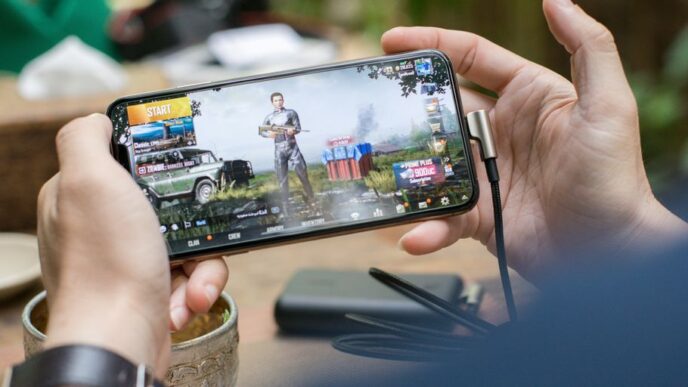In light of the recent assassination attempt on former President Donald Trump, tech companies are ramping up their cybersecurity measures. This shocking event has prompted a wave of reactions from major firms, highlighting the urgent need for enhanced security protocols. As the situation unfolds, both the tech industry and government agencies are reflecting on the lessons learned and the necessary steps to prevent future incidents.
Key Takeaways
- Major tech companies are increasing cybersecurity efforts following the assassination attempt.
- Social media platforms are facing criticism for their slow response to misinformation about the incident.
- The Secret Service’s actions reveal important lessons for corporate security practices.
- CrowdStrike’s involvement raises questions about its reputation and future in cybersecurity.
- The global tech infrastructure needs to be more resilient against political threats.
Tech Firms Respond to Attempted Assassination of Donald Trump
Immediate Reactions from Major Companies
In the wake of the apparent assassination attempt on Donald Trump, tech companies quickly reacted. Many firms issued statements condemning the violence and expressing their support for the safety of public figures. Here are some key responses:
- Meta emphasized the need for a safe political environment.
- Google pledged to enhance security measures for political events.
- Microsoft offered resources to help secure digital communications.
Statements from Tech CEOs
Several tech CEOs took to social media to share their thoughts. Their statements included:
- Tim Cook (Apple): "We stand against violence in all forms."
- Sundar Pichai (Google): "Safety is paramount for democracy."
- Satya Nadella (Microsoft): "We must protect our leaders and our values."
Initial Security Measures Implemented
In response to the incident, tech firms began implementing new security measures. These included:
- Increased monitoring of online threats.
- Enhanced security protocols for events involving political figures.
- Collaboration with law enforcement to ensure safety.
The recent events remind us that cybersecurity is crucial in protecting not just data, but lives as well.
This incident has highlighted the need for tech firms to take a proactive stance in safeguarding both their platforms and the individuals who use them.
Cybersecurity Lessons from the Secret Service’s Response
Analysis of Security Gaps
The recent assassination attempt on Donald Trump revealed significant security gaps in the Secret Service’s operations. An internal review found multiple failures in communication and planning, highlighting the need for better coordination among security teams. Key lessons include:
- Comprehensive Risk Assessment: Regularly evaluate potential vulnerabilities from all angles.
- Interagency Collaboration: Work closely with local law enforcement and private security to create a unified approach.
- Rapid Response Protocols: Develop clear evacuation routes and secure locations for emergencies.
Recommendations for Corporate Security
Companies can learn from the Secret Service’s response by implementing the following strategies:
- Training and Drills: Conduct regular training exercises to prepare for various threat scenarios.
- Utilizing Technology: Use advanced tools for surveillance and threat detection to improve situational awareness.
- Flexibility and Adaptability: Ensure security plans can adjust to changing situations quickly.
Insights from Former Secret Service Agents
Former agents emphasize the importance of learning from this incident. They suggest that organizations should:
- Engage the public to promote awareness and vigilance.
- Conduct thorough after-action reviews to improve future responses.
- Allocate resources effectively to cover all potential threats.
The assassination attempt serves as a stark reminder of the importance of executive protection and the need for robust emergency plans. Organizations must prioritize security to prevent similar incidents in the future.
Impact on Social Media Platforms

Spread of Misinformation
The attempted assassination of Donald Trump sparked a frenzy of misinformation across various social media platforms. Users quickly shared unverified claims, leading to confusion and panic. This incident highlighted the challenges of managing information in real-time, especially when the public seeks immediate answers.
Platforms’ Response to Conspiracy Theories
In the wake of the attack, social media companies faced criticism for their handling of conspiracy theories. Some key points include:
- Delayed responses: Many platforms were slow to address false claims, allowing misinformation to spread rapidly.
- Inconsistent moderation: While some platforms like Meta reduced their focus on news, others like X (formerly Twitter) saw a surge in unverified content.
- Algorithmic challenges: TikTok’s recommendation system favored engaging content, often at the expense of accuracy.
Public Reactions and Criticisms
The public’s reaction to the misinformation was mixed, with many expressing frustration over the lack of reliable information. Some notable reactions included:
- Calls for better content moderation to prevent the spread of false information.
- Concerns about the impact on civil discourse, as users became entrenched in their beliefs.
- A growing demand for transparency from social media companies regarding their policies and actions.
The rapid spread of misinformation following the assassination attempt serves as a stark reminder of the need for continuous adversary emulation in cybersecurity strategies.
Overall, the incident has raised important questions about the role of social media in shaping public perception and the responsibility of tech firms in ensuring accurate information dissemination.
Challenges in Digital Forensics Post-Assassination Attempt
FBI’s Investigation into Shooter’s Phone
The investigation into the shooter’s phone, following the assassination attempt, faced several hurdles. Unlocking the device was a major challenge due to advanced encryption. The FBI had to send the phone to a lab to gain access, which delayed the investigation.
Technical Hurdles in Digital Evidence Collection
Once access was gained, the next step was to collect data. Digital forensics experts had to deal with:
- Volatile data that could change or disappear if not secured quickly.
- Diverse data types that require different tools for extraction.
- Time-consuming analysis due to the sheer volume of information.
Potential Findings and Their Implications
The FBI is looking for clues about the shooter’s motives. They are particularly interested in:
- Geolocation records to track movements.
- Messages and emails that might reveal intentions.
- Photos and videos that could provide context.
The complexities of digital forensics highlight the need for specialized tools and skills to navigate the challenges of modern investigations.
In summary, the investigation into the shooter’s phone underscores the importance of digital forensics in understanding motives and preventing future incidents. The lessons learned from this case will be crucial for future investigations.
CrowdStrike’s Controversial Role and Its Aftermath
Historical Tensions Between Trump and CrowdStrike
CrowdStrike has had a complicated relationship with Donald Trump. In 2019, Trump criticized the cybersecurity firm for its role in investigating Russian interference in the 2016 election. This investigation revealed that Russian hackers were targeting the Democratic Party, which angered Trump and his supporters. The recent assassination attempt on Trump has reignited discussions about CrowdStrike’s role in political cybersecurity.
Speculations on CrowdStrike’s Involvement
After the assassination attempt, many began to speculate whether CrowdStrike was somehow involved. Some believe that the timing of the incident and the subsequent blackout of CrowdStrike’s services were not mere coincidences. This has led to a wave of conspiracy theories, suggesting that the firm might have been targeted due to its past actions against Trump.
Impact of the Incident on CrowdStrike’s Reputation
The fallout from the assassination attempt has had significant implications for CrowdStrike’s reputation. Many of its clients, including major corporations and government agencies, are now questioning their partnership with the firm. The incident has raised concerns about the security of their data and the reliability of CrowdStrike’s services. As a result, some companies are reconsidering their cybersecurity strategies, which could lead to a shift in the industry.
The events surrounding the assassination attempt have highlighted the fragility of our digital infrastructure and the potential consequences of political tensions on cybersecurity firms.
Global Cybersecurity Implications
International Reactions to the Incident
The attempted assassination of Donald Trump has sent shockwaves around the globe. Countries are now more aware of their cybersecurity vulnerabilities. Many nations are reassessing their security protocols to prevent similar incidents.
Potential Threats to Global Tech Infrastructure
The incident highlights several potential threats:
- Increased cyberattacks on political figures.
- Vulnerabilities in critical infrastructure.
- Greater risks associated with over-dependence on major tech companies.
Lessons for Global Cybersecurity Policies
This event serves as a wake-up call for governments and organizations worldwide. Key lessons include:
- Strengthening international cooperation on cybersecurity.
- Developing robust response plans for crises.
- Investing in advanced technologies to detect and prevent threats.
The world is now more interconnected than ever, and a single incident can have far-reaching consequences.
In summary, the attempted assassination has not only raised concerns about individual safety but also about the overall security landscape. Countries must act swiftly to address these vulnerabilities and ensure a safer digital environment for all.
Future of Cybersecurity in Political Campaigns
Evolving Threats to Political Figures
Political campaigns are becoming more vulnerable to cyber threats. Cyberattacks are increasing in frequency and sophistication, targeting candidates and their teams. Here are some evolving threats:
- Phishing attacks aimed at campaign staff.
- Ransomware targeting campaign data.
- Social media manipulation to spread misinformation.
Technological Innovations in Protection
To combat these threats, campaigns are adopting new technologies. Some key innovations include:
- Advanced encryption methods for data protection.
- AI-driven tools for detecting suspicious activities.
- Multi-factor authentication for secure access.
Policy Changes and Recommendations
As the landscape changes, so must the policies governing cybersecurity in campaigns. Recommendations include:
- Regular cybersecurity training for campaign staff.
- Collaboration with cybersecurity firms for threat assessments.
- Establishing clear protocols for responding to cyber incidents.
The landscape of political campaigning is shifting, and preparation is key to safeguarding candidates and their messages.
In summary, as we approach the 2024 elections, it is crucial for campaigns to be aware of the increased risks and to implement robust cybersecurity measures to protect against potential threats.
Conclusion
In the wake of the attempted assassination of former President Donald Trump, tech companies are taking a hard look at their cybersecurity measures. This shocking event has highlighted the need for stronger protections against threats, both physical and digital. As we move forward, it’s clear that the lessons learned from this incident will shape how these firms operate. They must prioritize safety and be ready to respond quickly to any potential dangers. The future of security in our tech-driven world depends on how well these companies adapt and strengthen their defenses.
Frequently Asked Questions
What happened during the assassination attempt on Donald Trump?
On July 13, Donald Trump faced an assassination attempt while speaking at a rally in Pennsylvania. Secret Service agents quickly intervened, pulling him off the stage as he was injured.
How did tech companies respond to the assassination attempt?
Major tech firms quickly tightened their cybersecurity measures and released statements condemning political violence, emphasizing the need for improved security protocols.
What security lessons can be learned from this incident?
Experts suggest that organizations should evaluate their security plans, ensure safe escape routes, and have emergency medical resources ready during public events.
How did social media platforms react to the misinformation following the incident?
Social media platforms struggled to manage the spread of false claims and conspiracy theories about the assassination attempt, leading to public criticism of their inaction.
What challenges are there in digital forensics after such events?
Investigators face difficulties accessing digital evidence, like the shooter’s phone, which can delay understanding the motives behind the attack.
What are the global implications of this assassination attempt?
The incident raises concerns about cybersecurity on a global scale, with potential threats to tech infrastructure and the need for international cooperation in security policies.













